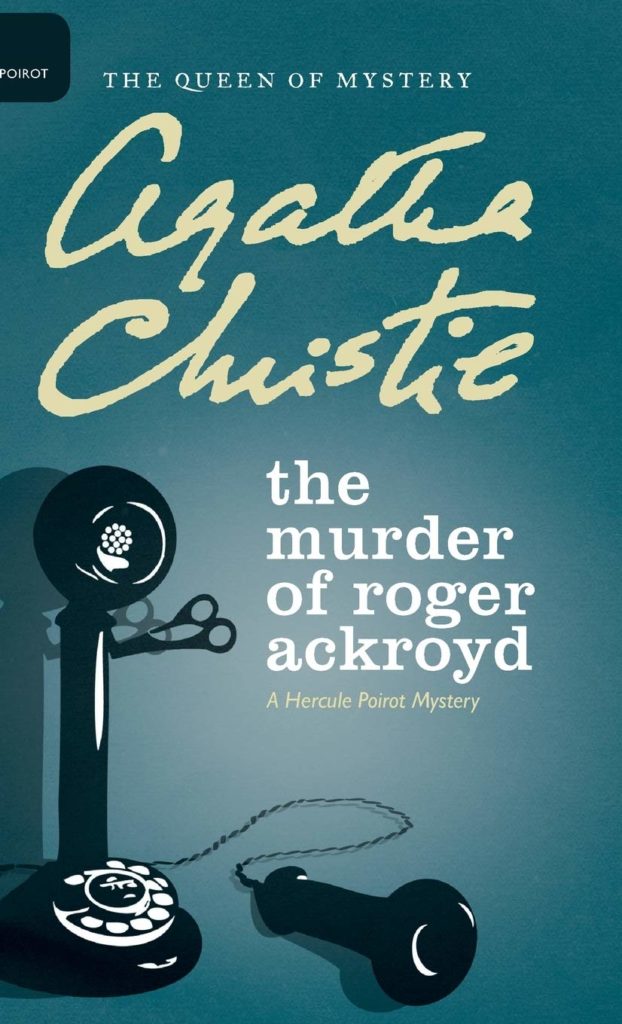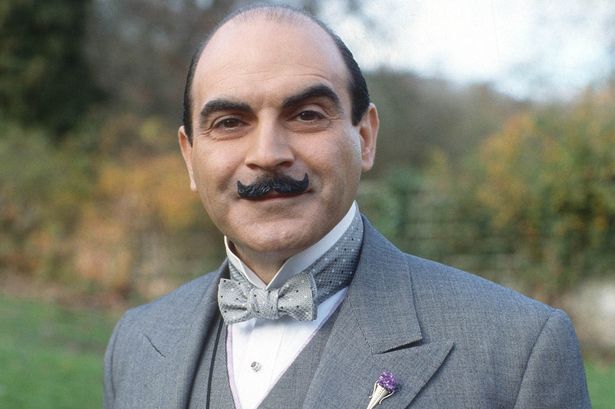The Murder of Roger Ackroyd by Agatha Christie
Back in January, I watched a PBS documentary on the work and life of Agatha Christie. It turned out to be a most enjoyable hour of television. You can watch it HERE.
I was very keen on Agatha Christie’s novels as a teen, as we had them on the family bookshelves. But for some reason, in my adult years, I stopped reading them. I can’t remember why — perhaps it was the overly convoluted plots or the one-dimensional characters. I do enjoy catching the odd Miss Marple on PBS. But it’s been years (and years) since I’ve read any of her mystery novels.
This documentary re-kindled my interest, especially when it hailed The Murder of Roger Ackroyd as one of the finest mysteries ever written and went on to say it breaks all the rules of traditional mystery writing — Having just finished a very thoughtful and wonderful book (more in a future post), I went to my handy digital library system and downloaded the novel to my Kindle. Turns out it’s one of Christie’s Herclue Poirot novels.
Now, I’ve never been a fan of Poirot either in novel or television — I’ve always found his character a bit ridiculous and pretentious – sorry to all you David Suchet fans.
On the other hand, Poirot has been called one of the greatest fictional detectives of all time, and given I was committed to reading such a highly acclaimed Christie novel, I plowed right in.
There’s a certain charm of tradition that comes with Agatha Christie’s novels, and I soon settled in to the once-familiar writing style. Patiently, I waited for Poirot to complete at least one or two sentences — at least before he solved the mystery. But I soon got used to that as well.
Poirot has retired to a small English village and is happy to putter around his garden and cottage. But he is soon drawn in to investigate two deaths. One due to an overdose of a sleeping drug, which some called accidental and others suicide. The other is a more obvious murder, as the victim, Roger Ackroyd, has been stabbed. Poirot, of course, will have to use his little gray cells to solve these two seemingly unrelated deaths. He is aided in his investigation by the town doctor, Dr. Sheppard, and his gossipy sister, Caroline. We soon meet a parade of interesting characters — and most of them seem to have had a motive to kill Roger Ackroyd. Poirot eliminates them from consideration one-by-one. Until we come to the murderer, that is.
In case you haven’t read The Murder of Roger Ackroyd, I won’t give away any more that that. I will tell you it was a real surprise and quite clever ending. I finished it with a sigh of contentment, but I also kicked myself because I had considered the final murder suspect early on, but due to Agatha Christie’s deftness in offering up red herrings and other plausible paths, I abandoned my supposition far too soon. But in the end:
“Everything is simple, if you arrange the facts methodically”
The characters are, per usual, a bit one-dimensional, but perhaps it’s pandemic brain (or my older self), this time I found them enjoyable. The sister, Caroline, was a especially funny character in this novel. All-in-all I enjoyed revisiting Dame Christie’s writing.
You can read the book just relaxing on a Saturday afternoon and enjoy the twists and reveals as they come. However, I plan to re-read it to see where I was lead astray, the clues I missed, and upon second reading better appreciate the art of this brilliantly written murder mystery. Either way — it will be a satisfying experience.
Full disclosure And Then There Were None is still my most favorite Christie novel.
___________________
I don’t know if I’m cheating to offer you this — HERE’S the film adaptation.
I am trying to decide whether or not I want to watch it. Pandemic brain says “oh why not?” But Book Barmy brain says “no, no, don’t do it! — the book is always better.”
I know, I know – this is a very trivial decision. I should be using my little grey cells on other things, like world peace, Oprah’s interview with royalty, or what to make for dinner (again!)
~~~ I’m obviously bored.









Some say that Caroline, the doctor’s sister provided inspiration for the creation of Miss Marple, so those who love her should appreciate this novel, without which she might not have been invented.
I did see the PBS piece about Agatha Christie and really enjoyed it. I, too, prefer Miss Marple to Poirot as he always seems a pompous character to me but this does sound intriguing. I might give it a go.
I am originally from the UK and in one of my trips home a few years ago I went to Christie’s holiday home, Greenway, in Devon. It is run by the National Trust I believe. Well worth the trip if you’re ever in the vicinity.
Oh, Welcome back dear Barmy ! You have truly been missed …
Your review brought back so many memories of time spent relaxing with a good mystery, they seem to be my best antidote for frustration and boredom ~and a great way to ‘treat’ insomnia. They don’t put me to sleep, but they make wakefulness a lot more pleasant. Thanks, s a